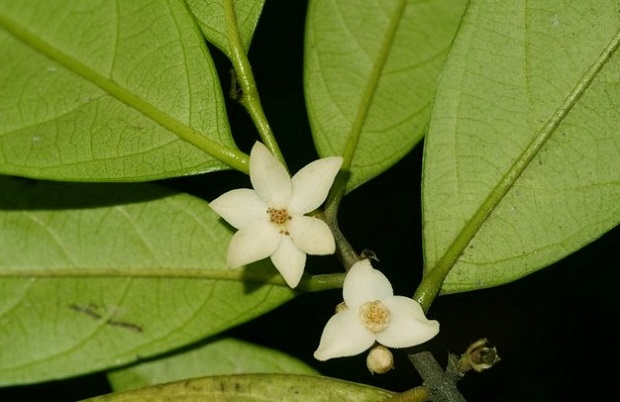Thailand Doctors Discover Potent Dengue Fighting Phytochemical from Local Herbal Plant
Nikhil Prasad Fact checked by:Thailand Medical News Team May 23, 2025 9 months, 19 hours, 21 minutes ago
Medical News: New Hope in the Battle Against Dengue Fever
A groundbreaking discovery by researchers from Mae Fah Luang University, Walailak University, Siriraj Hospital, and Mahidol University in Thailand has revealed the powerful antiviral effects of a naturally derived compound called heteropsine. Found in a Southeast Asian plant known as Trivalvaria costata, heteropsine shows promise in fighting the dengue virus, one of the most widespread mosquito-borne infections in tropical regions.
 Thailand Doctors Discover Potent Dengue Fighting Phytochemical from Local Herbal Plant
Thailand Doctors Discover Potent Dengue Fighting Phytochemical from Local Herbal Plant
This Medical News report highlights how scientists tested two compounds—bidebiline A and heteropsine—from the plant’s extract. They found that heteropsine had far superior ability to block dengue virus (DENV) infection in liver cells than bidebiline A. The study was conducted using human liver cell lines (Huh7), and further tests confirmed similar effects in lung and endothelial cells, suggesting broad applicability.
How Heteropsine Works Against the Virus
Dengue virus, responsible for over 390 million infections annually, poses a major health threat with symptoms ranging from fever and joint pain to potentially fatal conditions like dengue hemorrhagic fever and dengue shock syndrome. Its complexity is heightened by “antibody-dependent enhancement,” where previous infections worsen future ones, and by “cytokine storms”—excessive immune responses that can damage vital organs, particularly the liver.
Thailand Doctors and researchers found that heteropsine works by interfering at a very early stage in the infection process. Molecular docking studies showed that the compound binds directly to a key region of the dengue virus envelope protein called domain III (EDIII), which the virus uses to latch onto host cells. By disrupting this mechanism, heteropsine essentially blocks the virus from entering and taking over human cells.
Even more remarkably, heteropsine doesn’t just block viral entry—it also appears to suppress the body’s dangerous overreaction to infection. It reduces the expression of cytokine and chemokine genes like TNF-α, IL-6, RANTES, and IP-10, which are known to drive inflammation and organ damage in severe dengue cases. Additionally, it hinders the activation of NF-κB, a transcription factor that usually migrates to the cell nucleus during infection to turn on pro-inflammatory genes.
A Potential Game-Changer in Dengue Therapy
Unlike current dengue treatments that offer little more than supportive care, heteropsine could represent a new class of dual-action antivirals. The compound not only reduces viral replication but also controls the damaging immune responses associated with severe disease. This dual-action profile is particularly important for diseases like dengue, where both the virus and the body’s response to it can cause harm.
Previous attempts to repurpose d
rugs such as chloroquine, lovastatin, and prednisolone for dengue treatment have largely failed in clinical settings. Vaccines like CYD-TDV have shown limited effectiveness and are not suitable for all populations, especially those not previously exposed to the virus. These limitations underscore the urgent need for new therapeutic options like heteropsine.
Study Details and Scientific Insight
To verify the safety of the compound, the researchers tested various doses on human liver cells and confirmed that heteropsine did not harm healthy cells. The antiviral tests showed a dramatic drop in viral load after treatment, and further experiments confirmed that the compound interfered with viral binding and entry mechanisms. These findings were supported by imaging studies that revealed reduced nuclear translocation of the NF-κB protein in infected cells treated with heteropsine.
The study’s conclusion emphasizes the urgent need for antiviral drugs that target both viral replication and the body’s inflammatory response. Heteropsine appears to fit this need perfectly. It shows strong potential as a therapeutic agent that can reduce disease severity, protect vital organs like the liver, and ultimately save lives.
The study findings were published in the peer reviewed journal: Biochemical and Biophysical Research Communications
https://www.sciencedirect.com/science/article/abs/pii/S0006291X25007703
For the latest on
Thailand Doctors, keep on logging to Thailand Medical News.
Read Also:
https://www.thailandmedical.news/news/daidzin-from-soybean-shows-potential-in-fighting-dengue-virus
https://www.thailandmedical.news/news/carica-papaya-leaf-extract-for-dengue-treatment
https://www.thailandmedical.news/news/taiwanese-study-finds-that-hernandonine-from-hernandia-nymphaeifolia-can-be-used-to-combat-the-dengue-virus
https://www.thailandmedical.news/articles/dengue-news
https://www.thailandmedical.news/articles/herbs-and-phytochemicals
